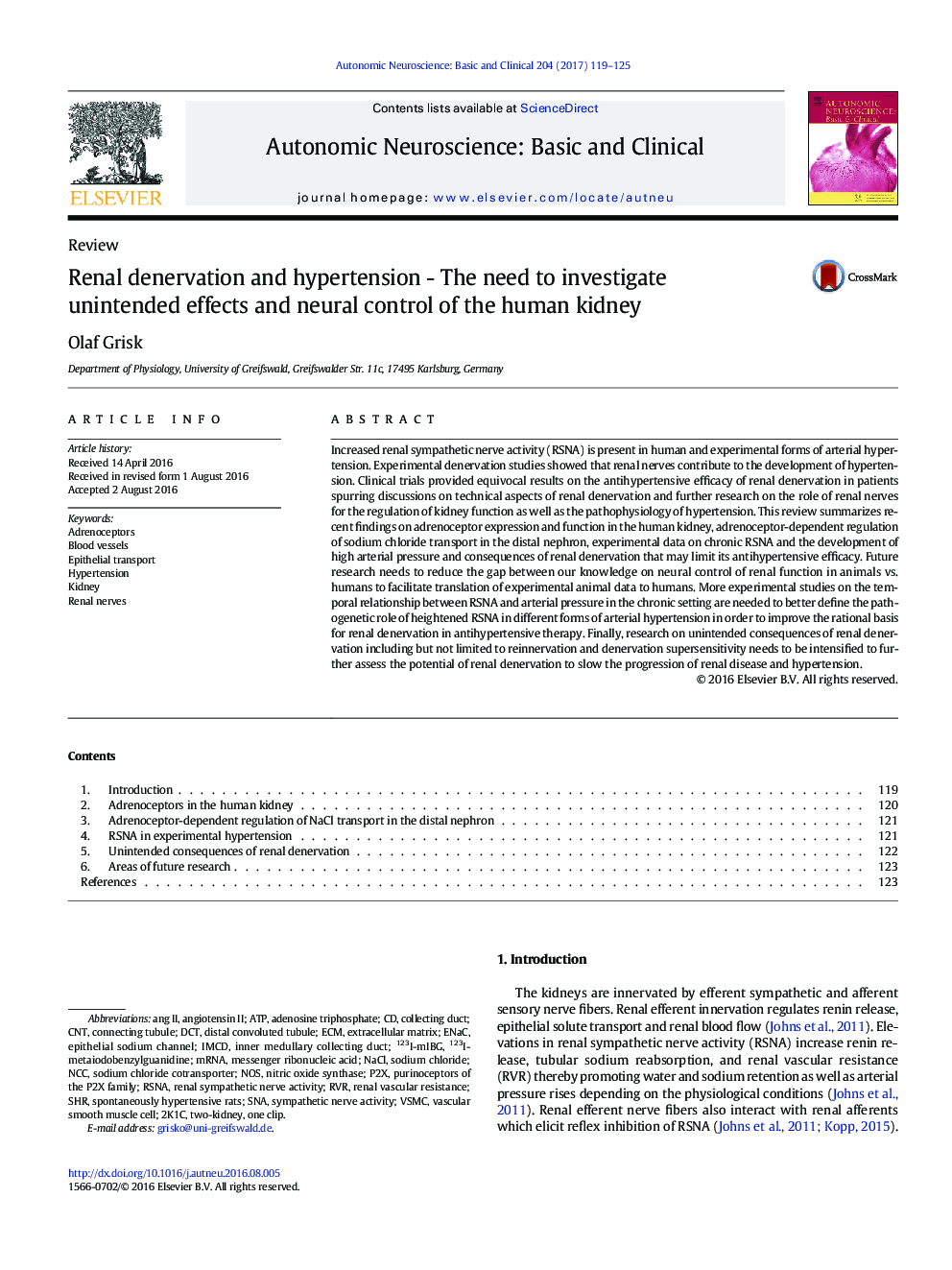| کد مقاله | کد نشریه | سال انتشار | مقاله انگلیسی | نسخه تمام متن |
|---|---|---|---|---|
| 5625981 | 1579511 | 2017 | 7 صفحه PDF | دانلود رایگان |
- Renal denervation lowers arterial pressure in experimental hypertension.
- Clinical studies provided equivocal results on the antihypertensive efficacy of renal denervation.
- Chronic recordings showed increased renal sympathetic nerve activity in hypertension associated with high calorie intake and renal damage.
- Research on neural control of the human kidney and consequences of renal denervation needs to be intensified to assess its therapeutic potential.
Increased renal sympathetic nerve activity (RSNA) is present in human and experimental forms of arterial hypertension. Experimental denervation studies showed that renal nerves contribute to the development of hypertension. Clinical trials provided equivocal results on the antihypertensive efficacy of renal denervation in patients spurring discussions on technical aspects of renal denervation and further research on the role of renal nerves for the regulation of kidney function as well as the pathophysiology of hypertension. This review summarizes recent findings on adrenoceptor expression and function in the human kidney, adrenoceptor-dependent regulation of sodium chloride transport in the distal nephron, experimental data on chronic RSNA and the development of high arterial pressure and consequences of renal denervation that may limit its antihypertensive efficacy. Future research needs to reduce the gap between our knowledge on neural control of renal function in animals vs. humans to facilitate translation of experimental animal data to humans. More experimental studies on the temporal relationship between RSNA and arterial pressure in the chronic setting are needed to better define the pathogenetic role of heightened RSNA in different forms of arterial hypertension in order to improve the rational basis for renal denervation in antihypertensive therapy. Finally, research on unintended consequences of renal denervation including but not limited to reinnervation and denervation supersensitivity needs to be intensified to further assess the potential of renal denervation to slow the progression of renal disease and hypertension.
Journal: Autonomic Neuroscience - Volume 204, May 2017, Pages 119-125
